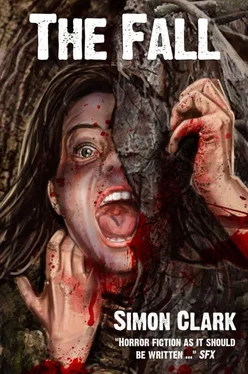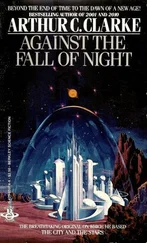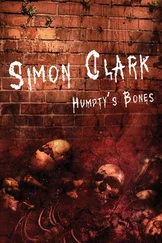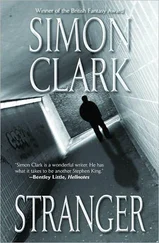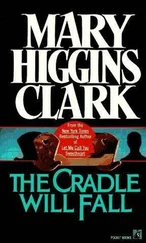His stomach told him that he’d recently eaten. Carefully, as if it was something he rarely did, he raised his arm and looked at his watch for a moment. ‘It’s now two o’clock. But in here’ – he touched the side of his head – ‘it feels later. So gut instinct is telling me my watch is slow, or it stopped for a while, because it seems to be working fine now.’ He spoke slowly and carefully as he studied his watch, because he was mindful of that pit in his mind. He didn’t want to precipitate a fall into what must be madness by speaking too quickly or without giving due consideration to what he would say next. ‘Also, I remember the café had pictures of puppies on the walls. And a man in a security-guard uniform who knocked a bowl of sugar onto his knee and he said?’ Sam pointed at Zita for the answer that would decide whether he stayed sane or fell into that shrieking pit of madness.
‘He said: “Oops, and I thought I was sweet enough already.” Then everyone laughed.’
The dark pit disappeared. Sam knew he was sane. But he knew, also, that he had no explanation for what he’d experienced.
He found himself staring into Zita’s deep brown eyes. He realised it was as if they were wordlessly exchanging information, about what they’d seen, about what they felt, about just what in God’s name they could do now.
‘You know what’s happened, don’t you?’ she said.
He nodded. ‘The question is, what happens now?’
‘Go back into town. We’ll go back to the café. Ask if they remember us. Ask subtly, that is, so they don’t write us off as raving lunatics. After that…’ She gave a shrug. ‘Any ideas?’
‘Yes. We either contact the newsroom and file the most amazing story they’ve ever heard—’
‘Which will make us rich – or get us fired.’
He nodded. ‘Or we forget all about it.’
He climbed into the passenger seat beside her. He’d done this before, but this was no eerie sense of deja vu .
‘We can decide what we do later,’ he said, with a small smile. ‘But first you can tell me all you know about time travel.’
ONE
Lee Burton sat in the amphitheatre. He pulled open the Dracula cape to give himself a clear view of his stomach. There were no back tyres of a petrol tanker crushing his stomach and kidneys to jelly. There was no blood. There was no pain now.
But the memory was still there, burning with a white-hot ferocity inside his head.
He’d been crushed by that truck in York. He was certain of it. He’d puked blood against the treads of the tyres. That gush of red had burst from his mouth like an explosion.
A priest had given him the last rites.
Only now he was back in the amphitheatre again with the sun beating down. For some reason Ryan Keith sat blubbing like a baby at his side, still clutching the Oliver Hardy bowler in his two plump hands.
Sweat trickled down Lee’s chest beneath the white frilly shirt. The Dracula cape pressed down on his back, seeming as heavy as a hot sheet of lead.
And he felt like he’d just staggered off the mother of all roller-coaster rides. His head spun. He felt disorientated.
But, oh my God, it felt so sweet to be alive.
TWO
Zita swore. She tried turning the key again in the Range Rover ignition. The starter motor turned, cylinders even fired, then the engine ran unevenly again for a moment or so before cutting out once more in a series of spluttering coughs.
Sam looked at her. ‘It sounds as if there’s a blockage in the fuel line or the ignition timing’s out.’
‘Shit,’ she said forcefully. ‘This car’s less than a year old. It can’t crap out on me. It bloody well can’t.’
Sam opened the car door. The heat inside the car from the sun was greenhouse-like. ‘Best leave it for a few minutes. The carburettor might be flooded.’
‘Sam, I don’t flood engines,’ she said dangerously. ‘I don’t flood engines, I don’t stall at traffic lights, I don’t try and drive away with the handbrake still on.’
‘Okay,’ he said soothingly, climbing out. ‘We’ll leave it for a moment, then try it again. If it still won’t start then we’ll call out a mechanic.’
She climbed out and slammed the car door on her side, glaring at it furiously before walking round to lean against the cow catcher bolted to the front.
Sam slipped on his sunglasses again and looked round the amphitheatre car park. People were streaming steadily from the amphitheatre itself. Most headed in the direction of a coach parked across the far side of the car park. Some had gone to the ice-cream van. But the whole scene was shot through with strangeness. There was an undeniable peculiarity about it.
The body language of the people was still all wrong. They looked as if they’d just walked away from a bomb explosion. Their expressions were dazed. Some stood and stared at their surroundings. Others repeatedly checked their watches; sometimes they listened for the tick, their faces the image of bewilderment. A couple were prodding the keys of their mobile phones and, Sam saw, they were having no luck whatsoever in getting through to loved ones, workplaces, the police or whoever they were phoning.
Would-be customers at the ice-cream van were having no luck either. The man who sold ice creams was sitting on the ground outside his van shaking his head. Sam might have been mistaken but he thought he heard the man muttering: ‘I’ve just seen myself. I’ve just seen myself…’
At that moment an elderly man with a walking stick and wearing a hearing aid hobbled up to Sam.
‘Excuse me, young man,’ asked the man as he fiddled with the earpiece of the hearing aid. ‘Can you tell me what day this is?’
‘Tuesday.’ It should have been a peculiar question; only Sam didn’t think it was, right now. The normal world had just flipped a somersault and Sam felt he was now a passive observer waiting to see what would happen next.
The old man cupped his hand behind his ear. ‘Pardon. I’m sorry, my gizmo…’ He tapped the earpiece of the hearing aid. ‘This thing seems to be on the blink. Monday, you say?’
‘No,’ Sam said loudly. ‘Tuesday.’
‘Oh? Tuesday? Oh, I see… I could have been sure it was… Oh, I’m sorry to have troubled you, young man.’ Mumbling, the old man hobbled away.
Sam watched him go, struck by the look of terror on the old man’s face. The old boy was probably convinced he’d just noticed the first signs of Alzheimer’s and all the horrors it would bring. Forgetfulness. Confusion. Incontinence. Asking for lunch at midnight. Calling his daughter by his wife’s name. Crying at night because he was afraid of the dark again.
But, deep down, Sam doubted it was Alzheimer’s.
Surely this was no senile dementia. Or, if it was, then it was as contagious as a head cold. Because he’d experienced that same confusion ever since he’d opened his eyes in the amphitheatre just 15 minutes earlier. And he’d seen it on the faces of everyone there.
‘That old guy thought he’d flipped his lid, didn’t he?’ Zita said in something near wonder as she watched him limp in circles around the car park, confusion written large in his frightened eyes. ‘He thinks he’s cracked up.’
‘And I figure we all know the feeling.’ Sam felt a strange itchiness in his thumbs – those thumbs that were actually extraneous fingers with twin joints. They sometimes did this when he was stressed or excited: his nerve endings jangled like tiny electric bells. Damn mutant hands , he told himself, feeling suddenly downright cranky. The ‘thumbs’ itched harder.
But wouldn’t this make one hell of a story if he could convince the editors back in the newsroom? ‘Zita,’ he said, feeling the tension build. ‘Remember a couple of minutes ago, I asked you what you know about time travel?’
Читать дальше
